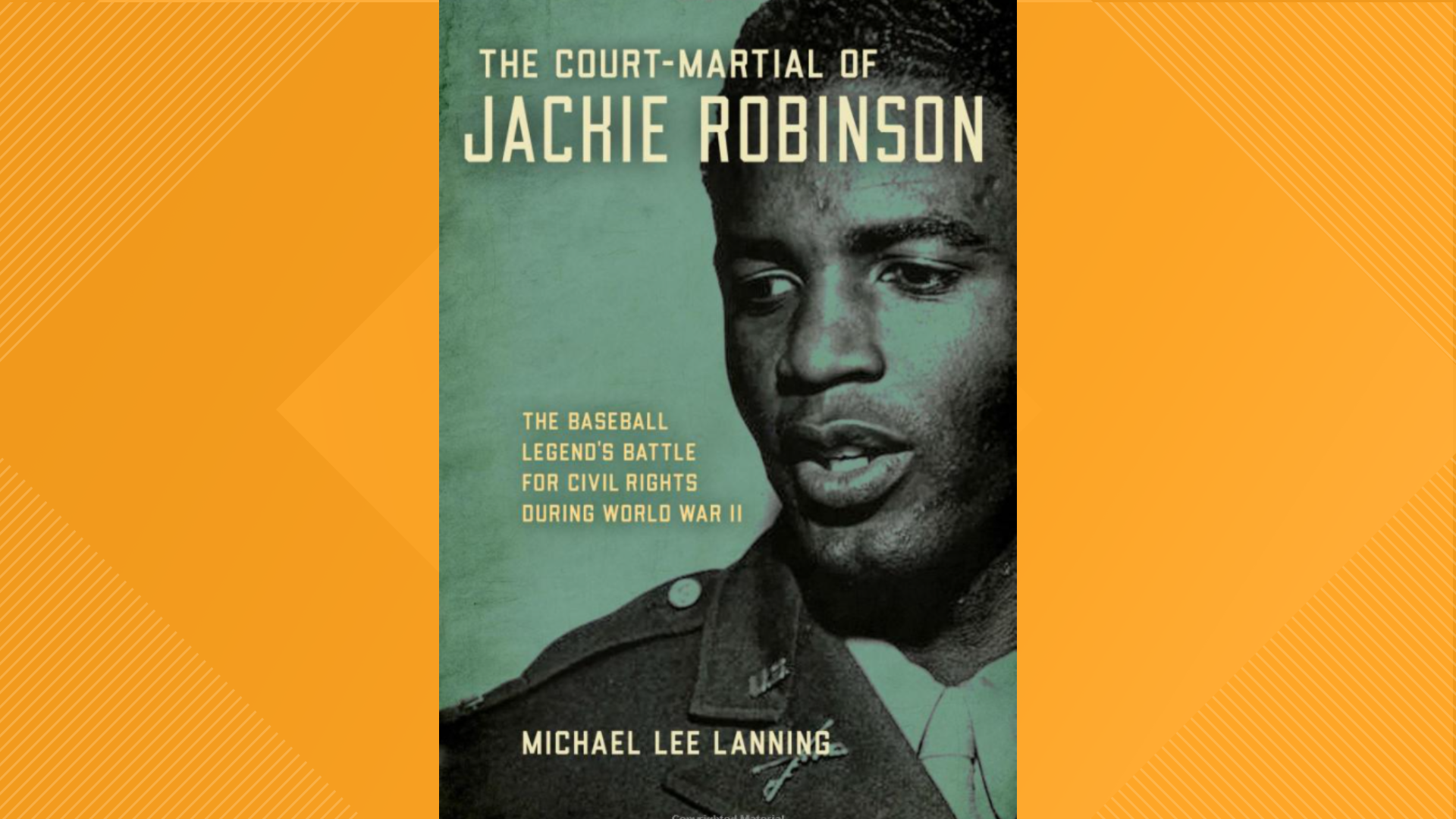FORT HOOD, Texas — It's amazing how history and fate can turn on a dime! Did you even know that Jackie Robinson was Court Martialed on Camp Hood one week after the D-Day invasion? Had he not been held over for trial, he probably would have been sent overseas to join General Patton's Army. Had he been convicted, the Dodgers wouldn't have considered him to be the one to break baseball's color barrier.
Lee Lanning, the author of The Court-Martial of Jackie Robinson: The Baseball Legend’s Battle For Civil Rights During World War II, told 6 News, “If he'd been convicted, he would have never been picked up by Branch Rickey and he may have been able to play in the Negro Leagues, but we likely never would have never heard of Jackie Robinson.”
Lanning has authored 27 nonfiction books on military history, sports and health and that include the book on Robinson and all that happened on a bus in Central Texas 11 years before Rosa Parks refused to give up her seat on a bus in Montgomery, Alabama.
Lanning said, “When Ricky saw that Jackie had faced up to adversity and fought it but stayed within the lines and accomplished it and had been successful, I think that was one of the key points why Ricky selected him."
So why was Jackie court martialed for sitting in the front of a bus on camp hood? It's because knew the laws.
Lanning told 6 News, “He got on the bus, the bus driver told him to go to the back of the bus. Well, if he'd have been off post in Texas law at that time that would have been true, and he would have had to go to the back of the bus. But Jackie was well aware of the law that said on military or federal property he didn't have to, so he refused. When they got to the main bus station the driver got off the bus, went to his dispatcher and Jackie overheard him say, 'This ‘N-Word’ wouldn't go to the back of the bus like I told him to.”
Witnesses were called at the court-martial. One woman said that at her job at the PX she had to treat black people fairly, but didn’t have to ride with them on the bus (This was 1944.)
Lanning said, “The statements are a mixture. There's over a dozen statements, some of them are just out and out racist. You can read them, the statements are in there. Some of them are fair and some of them just give a fair report of what they saw.”
The military moved quickly and the court-martial occurred within a month. The acquittal vote is sealed so we'll never know if Jackie was acquitted 5-4, 9-0, or somewhere in between.
So, the question is, did Jackie Robinson get a fair shake in Central Texas.
Lanning said, “I think so. I was proud in the book as a professional soldier, as a retired professional soldier that I think that Jackie got very good treatment from it. Not treatment that happened to get him there, it should have never occurred, but the court-martial process works. A lot of people make jokes about military justice and that's not true military justice is very much equal to or even superior to civilian courts. and it worked it paid off.”
This book is really unique because in both of Jackie Robinsons’ autobiographies, they barely mention the court-martial.
You can get Lee Lanning’s book The Court-Martial of Jackie Robinson: The Baseball Legend's Battle For Civil Rights During World War II on Amazon or wherever books are sold!
Also on KCENTV.com:

